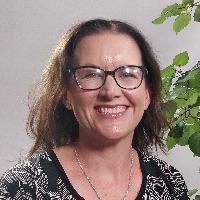Speech and Language Therapy
Postgraduate programmes in Speech and Language Therapy
Our main postgraduate qualification is the Master of Speech and Language Therapy. This qualification has a research pathway with 60 credits of course work plus a 120 credit thesis.
What are our speciality areas for supervision?
- Language and communication support for children and young people (Clendon, Quigan)
- Literacy and augmentative and alternative communication (Clendon)
- Speech sound disorders (Vowell)
- Cross-cultural identities and language (Vowell)
- Adult neurogenic communication disorders (Pillay, Grant)
- Voice – including transgender voice (Pillay)
- Paediatric feeding and swallowing (Jones)
- Adult dysphagia (Jones, Pillay)
- Hearing (Pillay)
- Communication assistance, bicultural practice, communication and mental health (Karanui-Golf)
- Decolonisation and critical transformation (Pillay)
What are the entry requirements?
To enter the Master of Speech and Language Therapy you will have met the University admission requirements, and been awarded or qualified for either the Bachelor of Speech and Language Therapy or the Bachelor of Speech and Language Therapy with Honours or equivalent having achieved a grade average of at least a B.
Applicants with a Bachelor of Speech and Language Therapy (Honours) degree or equivalent, with at least a B grade average will be eligible to reduce the amount of course work required by 60 credits. This means that you can advance directly into the thesis component of the degree. It is possible to enrol in the thesis mid-year.
How does the programme work?
If you study full-time, you’ll take 120 credits per year or 60 credits per semester.
The Master of Speech and Language Therapy is a parts-based qualification. That means you must complete the first part, before moving to the second.
Master of Speech and Language Therapy 180 credit programme
You must achieve a B grade average in the Part One courses in order to progress to Part Two.
Master of Speech and Language Therapy 120 credit programme
If you have a Bachelor of Speech and Language Therapy (Honours) degree or equivalent, with at least a B grade average, you’ll be eligible to reduce the amount of course work required by 60-credits and advance straight to thesis.
What is the course structure?
This will vary depending on whether you are entering with an Honours degree. Our programme is very flexible and there are options for full-time or part-time study.
If you have a Bachelor of Speech and Language Therapy without Honours
Research pathway
Part One (60 credits)
|
Course code & title * |
Description |
|---|---|
|
271711 Critical and Current Issues in Speech and Language Therapy (30 credits) |
An in-depth evaluation and analysis of critical and current trends arising in, and impacting on the work of speech language therapy clinicians and researchers. |
|
Plus 30 credits from |
|
|
168711 Health Research Design and Method (30 credits) |
Philosophical, ethical and methodological issues in relation to health research are examined. Selected quantitative and qualitative methods are explored in depth, in preparation for developing a research proposal for a thesis, or research project |
|
175746 Psychological Research: Quantitative Data Analysis (15 credits) |
An examination of how psychologists use quantitative data analysis techniques to address complex research problems involving multiple variables. Techniques including multiple regression, factor analysis and structural equation modelling are explored, with an emphasis on the relationships between analyses, research questions and design issues. |
|
175750 Qualitative Methods in Psychology (15 credits) |
The course provides advanced understanding and skill development to enable students to undertake qualitative research in psychology. |
| 267721 Research Methodologies in Education (15 credits) | An advanced study of quantitative, qualitative and mixed methods research design in education. Theoretical and practical issues of research are studied under three course themes: context for research, research designs, data collection and analysis. |
| 267741 Indigenous Research Methodologies (15 credits) | A study of Māori research frameworks, philosophies and processes and an examination of their contribution to the growing body of indigenous scholarship as relevant to educational settings. |
Part Two (120 credits)
|
Course code & title * |
Description |
|---|---|
| 271808 Thesis part I (60 credits) | A supervised and guided independent study resulting in a published work. |
| 271809 Thesis part II (60 credits) | A supervised and guided independent study resulting in a published work. |
If you have a Bachelor of Speech and Language Therapy with Honours
Research pathway
Part Two (120 credits)
|
Course code & title * |
Description |
|---|---|
| 271808 Thesis part I (60 credits) | A supervised and guided independent study resulting in a published work. |
| 271809 Thesis part II (60 credits) | A supervised and guided independent study resulting in a published work. |
Where is this programme available?
The Master of Speech Language Therapy is available via distance or on campus in Auckland. We have students studying across New Zealand and internationally.
Are there any other postgraduate options in Speech and Language Therapy?
If you already have a Masters degree and are interested in further study, then talk to us about enrolling in a PhD. At Massey you can complete your PhD by monograph (traditional thesis), by publication, or by practice.
Who should you contact?
How do you enrol?
- Login to the student portal and apply for admission to the programme
- You will need to provide a CV and a 1-2 paragraph summary outlining the specialty area(s) you will focus on for your postgraduate studies.
- Once accepted, select the courses for your pathway.
A Master in Speech and Language Therapy is a good fit if you:
- want to further your speech and language therapy career
- wish to become a specialist in your area
- have a research project or inquiry you want to pursue.
 Associate Professor Sally Clendon
Associate Professor Sally Clendon